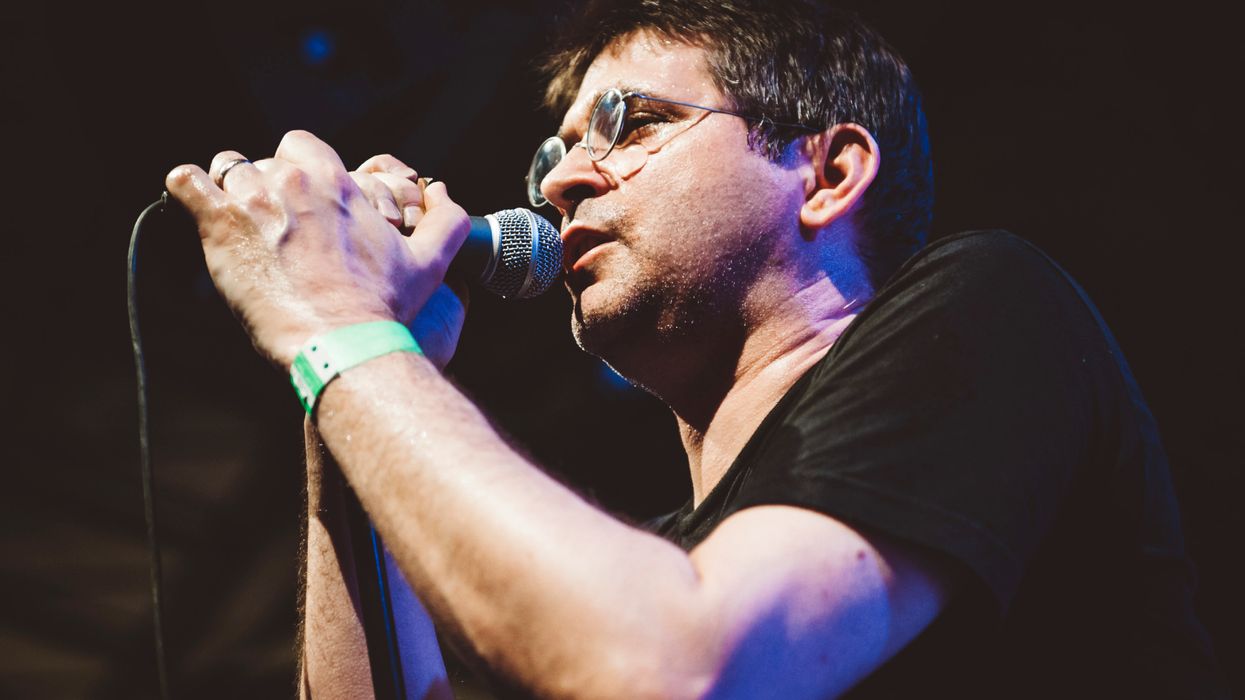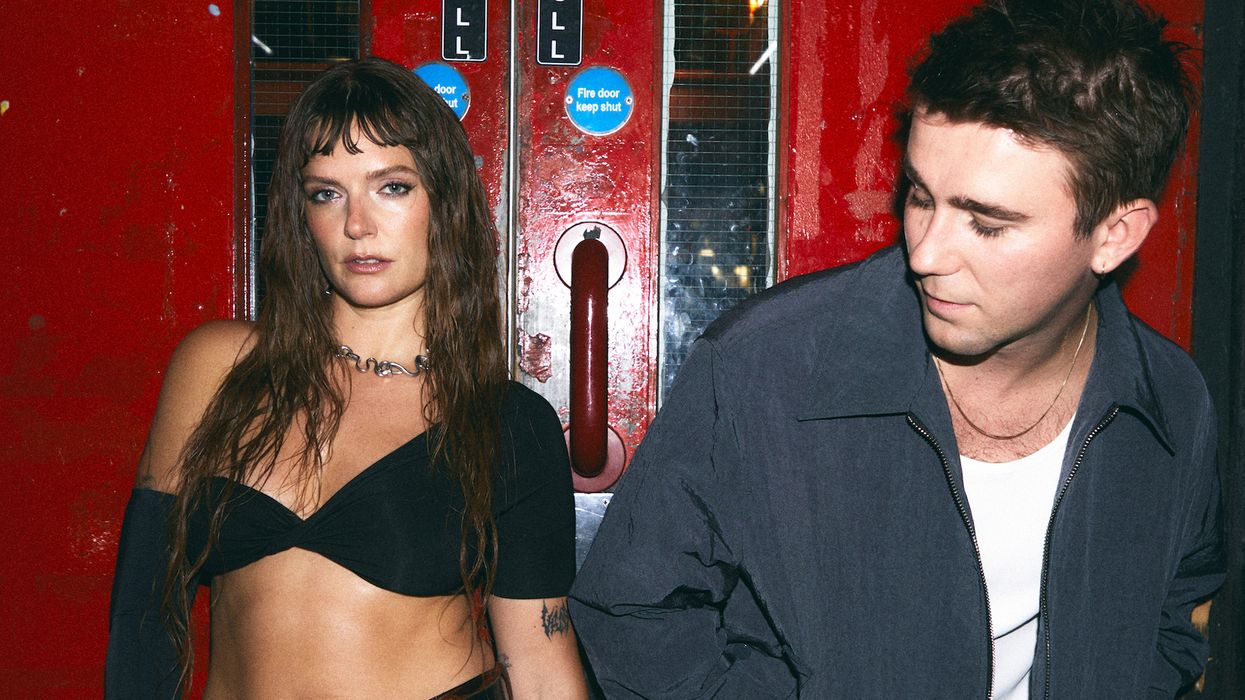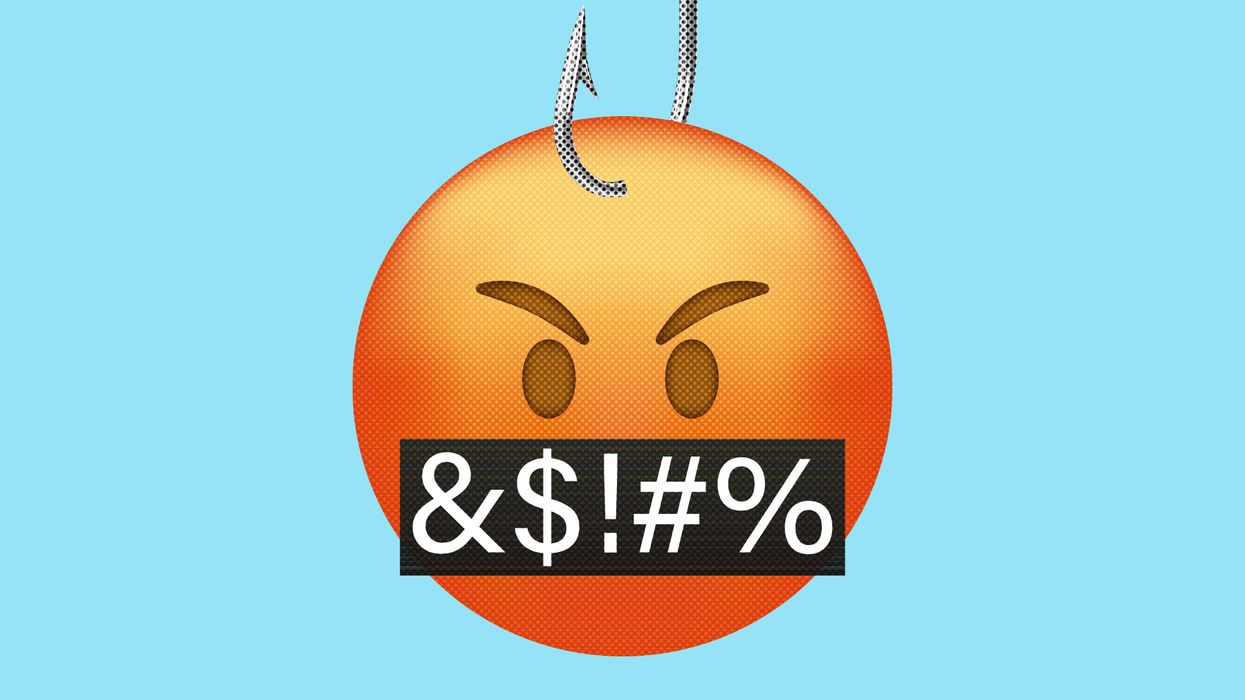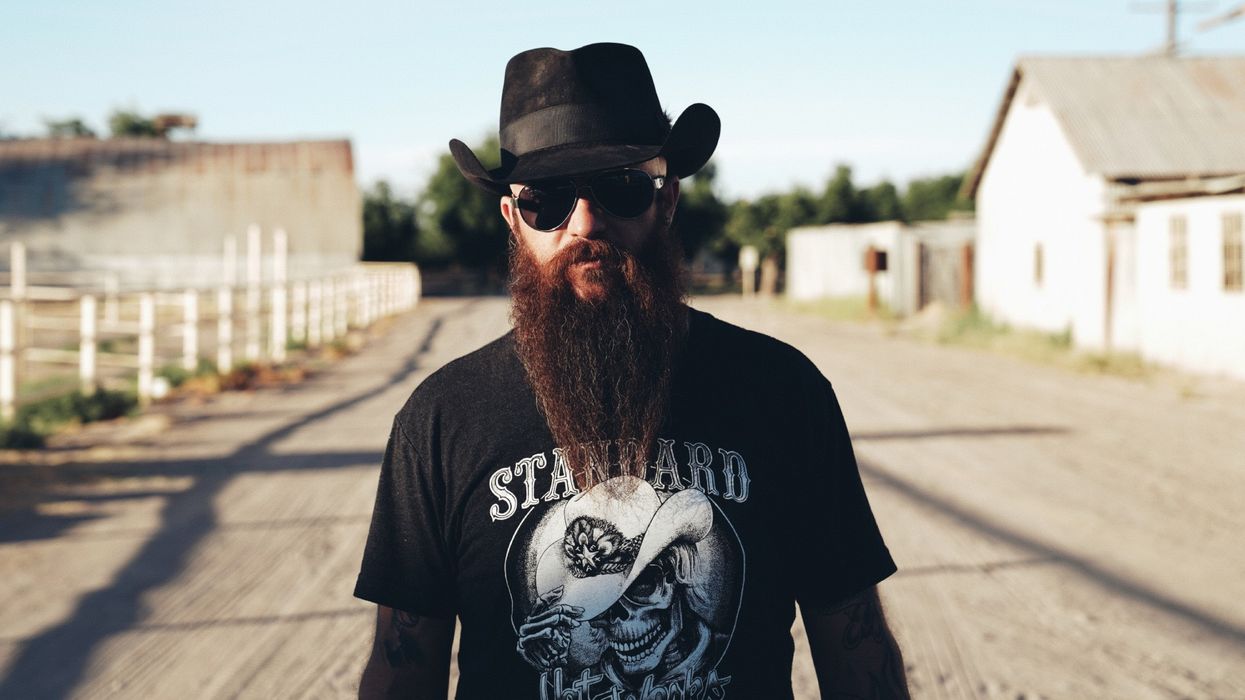Hours after the release of Kid Cudi’s ninth solo album, Insano, a curious sight appeared on a barge in New York’s Hudson River. It was a massive statue of Cudi, its eyes flaming red and fluorescent light shooting out of its mouth. A similar barge floated off the coast of Long Beach, while a third Cudi statue stood in the middle of Paris’ Place de la Bourse. “Satanic Kid Cudi slammed for unveiling massive statues of himself,” read a hilarious Page Six headline compiling social-media reactions to the stunt.
While it’s questionable whether the statues reveal Cudi to be a card-carrying member of the Illuminati, they seem like an apt reflection of the curious mix of self-absorption that defines the rapper, vocalist, and producer’s musical career. Since breaking out with his classic 2008 single, “Day N’ Nite,” the Cleveland-born artist has portrayed his inner mind’s eye as a source of psychedelic magic, high drama, and unfathomable sorrow. On his best work, he dazzles as a personification of his listeners’ fears and desires. At his worst, he descends into pompous egocentricity and mewling self-indulgence.
Cudi’s variegations have resulted in one of the most impressively chaotic discographies of the blog-rap generation. One never knows what he’ll deliver: a bland, Afropunk-baiting alt-rock riff like 2015’s Speedin’ Bullet 2 Heaven, a surprisingly compelling reunion with mentor-turned-frenemy Kanye West like 2018’s Kids See Ghosts, or a competent yet inconsistent array of familiar stylistic tropes like 2022’s Entergalatic soundtrack. The new Insano is another mixed bag, at least in terms of execution. At an hour and 21 songs and with a “deluxe edition” rumored to arrive soon, it comes off as repetitive, with too many songs faltering around the same messages and ideas. But it also has a handful of numbers that soar on Cudi’s true strength: imbuing his words and sounds, no matter how facile, with unrepentant conviction.
While music critics have long fussed over Cudi’s work — a fraught dynamic he complained about in the 2021 documentary A Man Named Scott: The Kid Cudi Story — the 39-year-old has become an elder statesman to an audience accustomed to experiencing rap as a vibe-y blur of singsong melodies, inebriated euphoria, and youthful angst. Travis Scott has cited him as a major influence. Playboi Carti and Young Nudy shouted him out on their infamous 2019 leak, “Pissy Pamper.” (Cudi tried to recruit Carti for Insano, but the notoriously enigmatic rapper wouldn’t clear his vocals.) With Insano, the original Mr. Rager rejoins the party, inviting acolytes like Scott, A$AP Rocky, Lil Yachty and Young Thug as well as veterans such as Lil Wayne, DJ Drama, and Pharrell Williams to participate. Rocky uses his appearance to fire back at Drake over the latter’s Rihanna diss on For All the Dogs. “These niggas can’t stomach me/Better go get a man-drake,” he raps on “Wow.” Meanwhile, Cudi samples a verse from XXXtentacion’s “Orlando” for “X & Cud.”
“Man, I love these raps, ha ha/Tell most of these niggas I’m papa,” raps Cudi on “Often, I Have These Dreamz.” Insano may be Cudi’s biggest explosion of positive-minded “superhero music,” as he has called it, since 2013’s Indicud. However, Indicud was also inspired by angry insouciance over the demands of stardom as well as unnamed enemies, giving the music a palpable edge. (Last November, when Cassie’s lawsuit against Sean “Puffy” Combs alleged that he blew up Cudi’s car in 2012, some fans speculated that Indicud’s fiery album art references the incident.)
By contrast, Insano mostly lacks emotional content. With DJ Drama as our host, tracks like “Most Ain’t Dennis” throb and pulse as Cudi commands us to “bounce around,” boasts about how he’s “winning” and offers stiff, low-calorie bars like “See me in the drop/Got a bad bitch I’m a chop/A lot.” “Electrowavebaby” is an appealing yet ephemeral take on Ace of Base-flavored island pop. “Cud Life” offers to take us to Ragertown with drinks and blunts in tow, but the effect is more akin to being stranded on a too-crowded dance floor, lost amidst a sea of bros and Beckys.
It’s not until the second half of Insano that Cudi begins to offer some context for his willful inebriation. He harmonizes about “demons” that haunt him over the keyboard-inflected melancholy of “Tortured” and “X & Cud,” and expresses thanks for being “blessed” on “Funky Wizard Smoke.” “If you got some cash, let’s go/If you got that swag, let’s go,” he chants on the latter. Throughout, Cudi’s uniquely droll and pitch-y voice, wavering between melodic humming and fervent spoken raps, is ever present. Those tics may dissuade some from digging through Insano’s chaff to uncover decent cuts like “Wow” and “Rager Boyz” with Young Thug. For the rest of us, those moments offer slight evidence that one of the key architects of modern rap can still generate meaningful sparks.
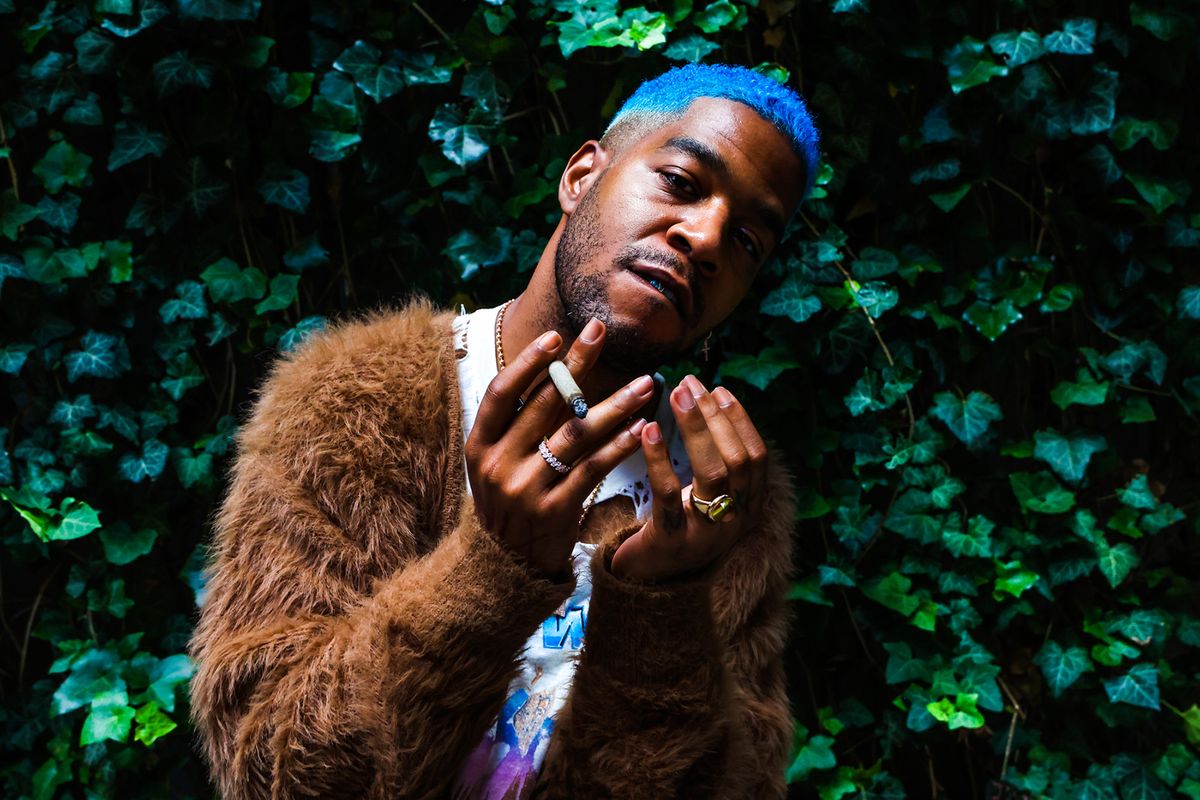






 Coat (polyester and wool), shirt (silk), Dries Van Noten, SSENSE.com / Flower (silk), M&S Schmalberg
Coat (polyester and wool), shirt (silk), Dries Van Noten, SSENSE.com / Flower (silk), M&S Schmalberg
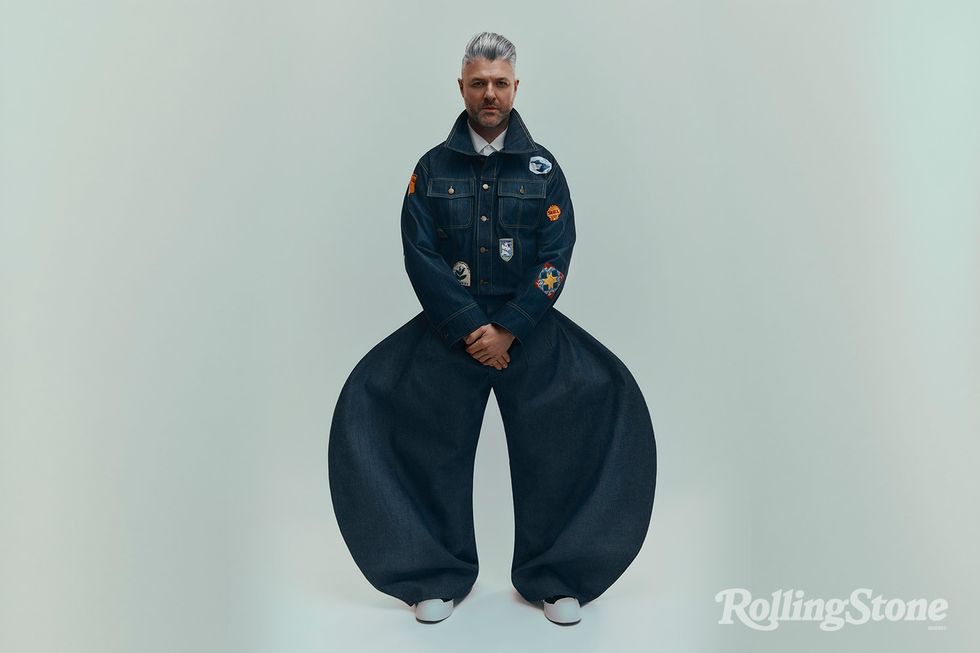 Blouson (denim and hand embroidered patches), WJ Crosson / Shit (polyester), Homme plissé Issey Miyake, Holt Renfrew/Pants from personal collection/ Shoes(canvas), Marni
Blouson (denim and hand embroidered patches), WJ Crosson / Shit (polyester), Homme plissé Issey Miyake, Holt Renfrew/Pants from personal collection/ Shoes(canvas), Marni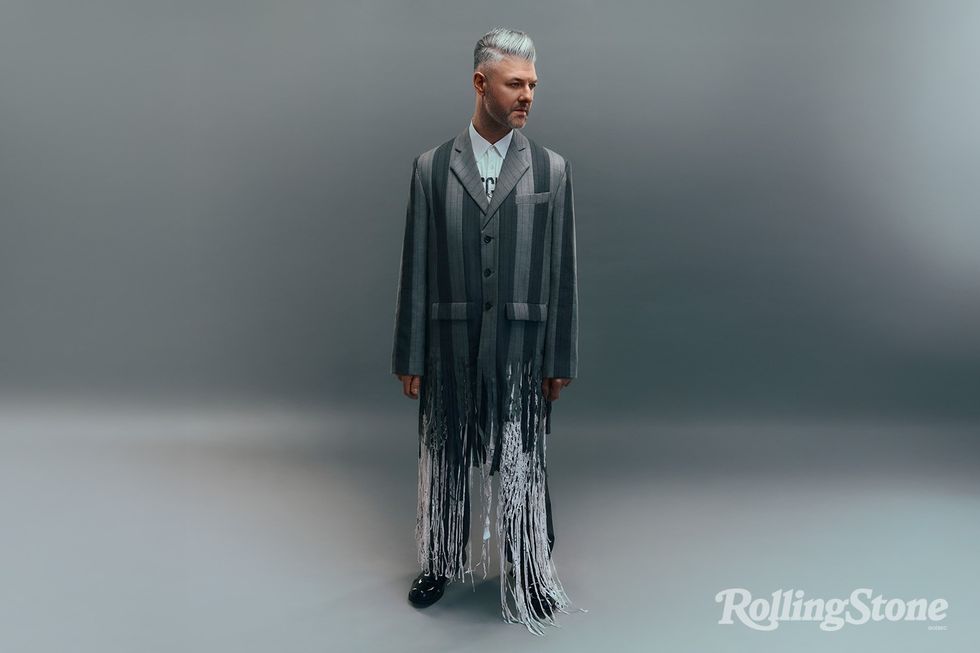 Jacket and pants (virgin wool), shirt (acrylic coated cotton), Moschino / Shoes from Pierre Lapointe's personal collection
Jacket and pants (virgin wool), shirt (acrylic coated cotton), Moschino / Shoes from Pierre Lapointe's personal collection